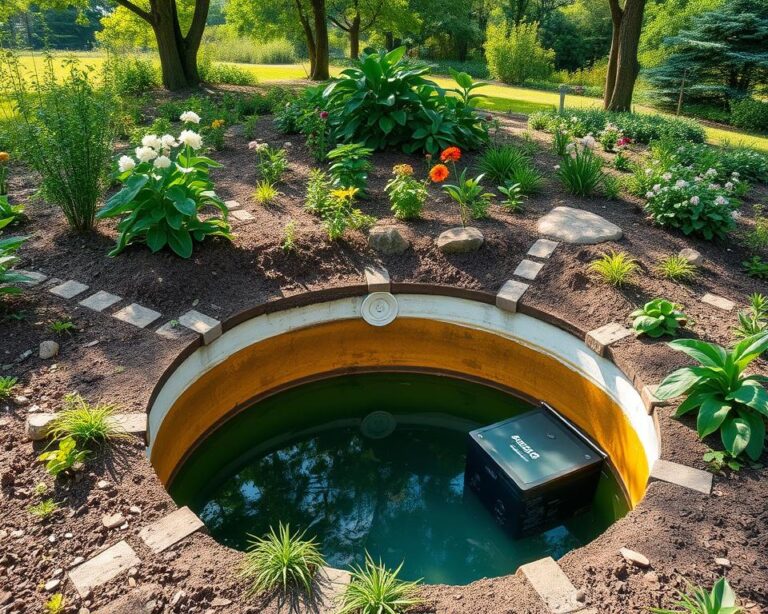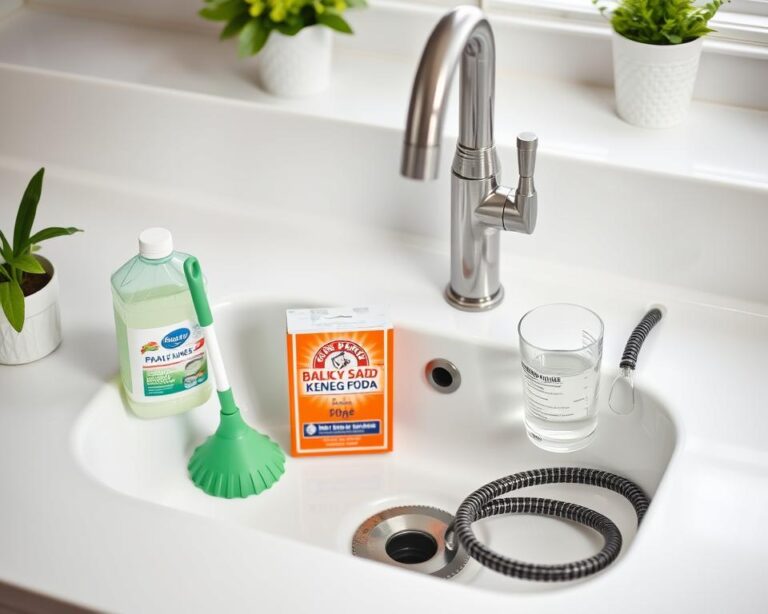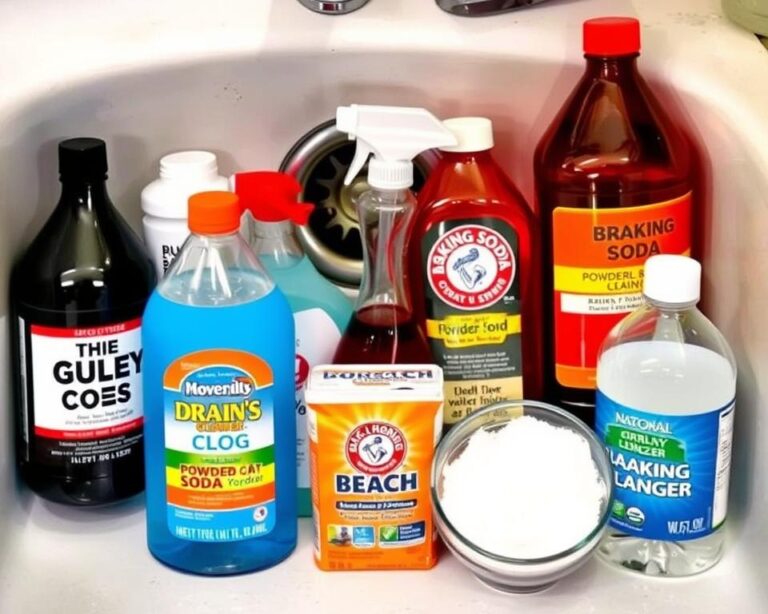Clogged pipes can be a major inconvenience, causing frustration and unexpected expenses for homeowners. Having effective drain unblocker solutions at your disposal is crucial for quickly addressing these issues and restoring proper functionality to your plumbing system. Various challenges come with blocked drains, such as the buildup of organic matter, grease, and hair, which can create persistent clogs if not handled promptly. Studies have shown that specific chemical drain cleaners can efficiently dissolve these materials, with tools like plungers and drain snakes serving as reliable methods for DIY solutions1. It’s essential to recognize and act on drain problems early to avoid excessive damage and costly repairs. In this article, we will explore an array of products and methods designed to unclog drains effectively, ensuring you can tackle any drainage dilemma with confidence.
Understanding Common Causes of Clogged Drains
Clogged drains often arise from various sources, making it essential for homeowners to recognize the common causes of clogs. One significant factor is grease buildup, which can solidify over time and contribute to serious plumbing issues2. Hair and animal fur frequently accumulate in bathroom and laundry drains, leading to slow water drainage2. Additionally, food scraps can cause kitchen sink blockages, even when garbage disposal systems are in use2. Improper disposal of non-biodegradable items, such as feminine hygiene products and baby diapers, also results in substantial drain problems3
Homeowners should be aware of mineral deposits that build up in drains due to hard water, which can impede water flow2. Furthermore, tree roots can invade pipes searching for moisture, leading to potential blockages and damage to plumbing systems3. By understanding these common causes, individuals can implement preventive measures to mitigate the risk of clogs, ensuring a more efficient plumbing system in their homes4.
Signs You Have a Clogged Drain
Recognizing the signs of clogged drain plays a crucial role in preventing expensive plumbing solutions and plumbing disasters. One of the most obvious signs is slow drainage in sinks or bathtubs which may indicate a deeper issue5. Homeowners should also be alert to unusual smells, as foul odors often originate from drains6. Bubbling or gurgling sounds coming from toilets can be another indicator that something might be amiss5.
If standing water accumulates around appliances like washing machines or dishwashers, it suggests significant clogs that could threaten the plumbing system7. Insects attracted to drains might indicate decomposing food, further signaling a potential problem6. Additionally, water that flows back up your drain instead of down can be a telltale sign of sewer line issues5.
Ignoring these issues can expose a family to hazardous situations and expensive fixes down the line, with many folks noticing drastic increases in their water bills7. Homeowners need to address any indicators promptly to avoid larger plumbing issues6.
DIY Drain Unblocker Solutions You Can Try
If you find yourself facing sluggish drains, consider using some effective DIY drain unblockers that can help unclog drains without relying on commercial chemicals. A simple and popular method involves mixing 1/2 cup of baking soda with 1/2 cup of distilled white vinegar. This combination is not only safe but also economical, offering a viable alternative for those who want to avoid harsh drain cleaners that can harm the environment89. After allowing the mixture to fizz for a few minutes, follow up with boiling water to dissolve any stubborn clogs.
Moreover, you can experiment with various homemade cleaners, including paving the way with options like baking soda and lemon juice or dish soap mixed with hot water. These concoctions are useful for managing minor blockages caused by food residues and hair8. When tackling particularly stubborn clogs, tools such as a plunger or a drain snake can often prove to be more effective than traditional methods, as they physically remove obstructions from the pipes. A wet-dry shop vacuum can also provide impressive suction to help loosen clogs when needed8.
Regular maintenance is critical. Using hot water monthly and incorporating a drain trap can significantly lessen the likelihood of drain issues. Many of these solutions employ common household items, making them not only convenient but also budget-friendly9. Keep in mind, however, that while these DIY approaches are effective, persistent issues or unusual sounds coming from your plumbing system might indicate a deeper problem, necessitating professional plumbing services.
When to Use Chemical Drain Unblockers
Chemical drain unblockers, such as Drano and Liquid-Plumr, offer powerful unclogging capabilities, making them popular choices among homeowners. These effective cleaners are particularly useful when water starts to drain slowly, indicating an initial clog that can be remedied quickly with the right product1011. It is important to note that using chemical cleaners may not be effective when the issue involves external drains, limiting their scope of application10. Additionally, certain materials can be compromised by these products; for instance, caustic soda can damage uPVC pipes if not handled properly10.
For those considering chemical options, it’s good to understand that while these cleaners may act within 15 to 20 minutes, they can corrode internal pipeline linings with repeated use11. It’s advisable to reserve these powerful uncloggers for minor clogs rather than frequent or severe blockages11. Big brands sometimes offer formulations that are safer for septic systems, but caution is always warranted with harsher chemicals10.
Using chemical cleaners should be done judiciously. Safer alternatives, such as baking soda mixed with white vinegar, may provide limited relief for small blockages, while high-concentration acids and industrial cleaners are typically reserved for professional use10. Understanding the nuances among various products is essential for effective and conscientious drainage maintenance.
For expert guidance on selecting the appropriate unblockers or for handling severe blockages, consider reaching out through this contact link. Educating oneself about the proper use of these cleaner options will ensure a more informed approach to home maintenance.
Natural Drain Unblockers: Eco-Friendly Options
For environmentally-conscious homeowners, natural drain unblockers provide effective and eco-friendly cleaning solutions that prioritize safety and sustainability. The popular combination of baking soda and vinegar is well-known for its ability to unclog drains, making it a favorite among those seeking natural options12. The EPA recognizes vinegar and baking soda as safer alternatives to harsh chemical drain cleaners, which can pose risks to both plumbing systems and the environment12.
Another effective solution is the use of hot water and dish soap, particularly for grease and oil clogs commonly found in kitchen sinks. Consumer Reports suggests this method as a safe way to clean drains while being gentle on plumbing12. Additionally, the California State Water Resources Control Board has confirmed salt as an eco-friendly alternative, proving beneficial for maintaining clear drains12.
Soda crystals are a naturally occurring mineral salt that dissolve in water and can be used to tackle dirt and grease without harmful additives. This solution involves pouring a cup of soda crystals down the drain and allowing them to sit for 5 to 10 minutes before rinsing with hot water, repeating as necessary until the issue is resolved13. Safe plumbing solutions like these not only eliminate the blockage but do so without compromising the integrity of your plumbing.
When facing hair blockages—frequent culprits in bathtub or shower drains—a drain-clearing brush serves as an eco-friendly alternative to chemical cleaners. Preventive measures such as using drain covers can catch hair effectively, significantly reducing blockages and the need for manual intervention. These strategies reflect a commitment to safe plumbing solutions that benefit both the home and the environment.
How to Maintain Clear Drains
Proactive drain maintenance is essential to ensuring clear drains and avoiding costly plumbing repairs in the future. Regular use of enzyme-based products can break down organic materials while minimizing impact on your pipes. It’s vital to avoid putting inappropriate disposals like grease, coffee grounds, and hair down the drain, as these are common culprits behind clogs14.
Simple tasks, such as running hot water down the drain periodically, can help keep pipes free-flowing. Another effective method involves a combination of vinegar and baking soda, which can help unclog drains or loosen minor blockages15. Taking these preventive steps drastically reduces the likelihood of developing serious plumbing issues, with a significant percentage of plumbing-related problems being preventable through regular plumbing prevention practices14.
For added protection, consider installing screens in sinks to catch food particles and hair. Scheduling routine inspections ensures that any potential issues can be addressed promptly. Following a consistent cleaning routine will provide peace of mind that your home’s plumbing is well taken care of, leading to fewer emergencies in the long run. Failing to have a maintenance plan can result in serious clogs, requiring professional intervention to keep your drains clear and.
Tools for Unclogging Drains: What You Need
When faced with a clogged drain, having the right unclogging tools on hand can make all the difference. A plunger is often the first tool homeowners reach for; it’s great for shallow clogs in sinks, showers, and toilets. Flange plungers are specifically designed for toilets, while cup plungers work well for sinks and bathtubs16.
For deeper clogs, a drain snake is an essential tool. This flexible device comes in both manual and motorized versions, with motorized drain snakes offering significant power for tough blockages. Many plumbers prefer motorized options for their extended reach and automatic feeds16. Moreover, manual drain snakes, equipped with long cables and corkscrew tips, can effectively break up debris that causes stubborn clogs16.
Another powerful option is the hydro jet. This tool utilizes high-pressure water to clear obstructed pipes, effectively breaking down tough clogs, such as grease or even tree roots in sewer lines, making it a favored choice of professionals16. Sectional cable cleaners are recognized for their safety and ease of use, with cables reaching lengths of up to 15 feet, making them ideal for tackling various types of blockages17.
For common household issues like hair clogs, plumbers recommend regular pipe inspections every two years to help prevent and identify problems early on17. Whether working with baking soda and vinegar to tackle minor clogs or employing a drain snake for tougher situations, having the right tools readily available is key to maintaining clear drains.
Understanding the uses and benefits of each tool ensures that homeowners can effectively address minor or major drain issues as they arise. Building a toolkit that includes unclogging tools such as a plunger, drain snake, or auger can provide peace of mind and a practical solution to drain maintenance.
Professional Drain Unblocking Services
When dealing with persistent or significant blockages, enlisting the help of professional plumbers can be indispensable. Companies specializing in drain cleaning services are equipped with advanced techniques and tools that DIY methods might not address. For instance, hydro-scrub jetting is an effective sewer jetting method for clearing tough clogs and managing dirty drains18. Regular home drain cleaning is recommended at least once a year to prevent costly plumbing emergencies, including backups and leaks18. Professional drain cleaning not only resolves current issues but also helps enhance drainage efficiency, eliminate odors, and extend the lifespan of your plumbing system19. Signs indicating the need for a professional touch may include strange smells, gurgling sounds, and slow drainage in your pipes19.
Reliable emergency plumbing services can provide peace of mind knowing that help is just a call away, typically with a rapid response time20. Using professional snaking and hydrojetting techniques, these experts can clear drain blockages effectively without resorting to harmful chemical drain cleaners19. Homeowners should be proactive and avoid disposing of grease, oils, and food scraps down drains, as these can lead to clogged pipes18. With reputable companies offering various drain cleaning services across different kitchen and bathroom fixtures, a thorough inspection by a professional can prove to be a worthwhile investment in the long-term health of your plumbing system19.
Preventive Measures to Avoid Clogs
Effective drain clog prevention is essential for maintaining a healthy plumbing system and can save homeowners significant costs down the line. A crucial first step is educating all household members on proper disposal methods for food waste, hair, and paper products, as these are major culprits for clogging pipes. For instance, pouring grease down the drain not only solidifies over time but also sticks to the inner walls, making it a common issue in many homes21. Additionally, regular use of maintenance products like Drano® Max Build-Up Remover on a monthly basis can significantly aid in keeping drains clear22.
In terms of sewer maintenance, establishing a routine for flushing drains with hot water can help dissolve grease and soap buildup. It’s recommended to avoid disposing of improper items such as coffee grounds, fibrous vegetables, and starchy foods down the garbage disposal, as they often lead to serious clogs21. Installing drain guards or screens further promotes prevention by blocking debris from entering drainage systems, which has proven to be one of the easiest yet most effective methods21.
Finally, scheduling regular professional drain cleaning services and inspecting septic tanks every few years can extend the life of your plumbing and help catch issues before they escalate23. By adopting these preventive measures, homeowners can ensure they are taking proactive steps to prevent blocked pipes and maintain their plumbing systems effectively.
FAQ
What are the most common causes of clogged drains?
The most common causes of clogged drains include grease buildup, hair accumulation in sinks, foreign objects in kitchen drains, and improper disposal of paper products. Regular maintenance and mindful disposal can help mitigate these issues.
How can I tell if I have a clogged drain?
Signs of a clogged drain include slow drainage in sinks or tub, strange odors coming from the drain, and unusual bubbling sounds from toilets. If you notice these signs, it’s important to take action quickly to avoid further plumbing problems.
What DIY solutions can I try for unclogging drains?
You can try simple DIY solutions like a mixture of baking soda and vinegar, pouring hot water down the drain, or using a combination of salt and hot water. Tools like plungers and drain snakes can also be effective for more stubborn clogs.
Are chemical drain unblockers safe to use?
Chemical drain unblockers can be effective but should be used with caution. It’s important to follow the instructions carefully, as some products can damage pipes or have safety hazards. Always check the compatibility with your plumbing system.
What eco-friendly options are available for unclogging drains?
Eco-friendly solutions include natural drain unblockers like Bio-Clean, which utilizes bacteria and enzymes to break down organic waste safely. These options are effective and safe for both plumbing systems and septic tanks.
How can I maintain clear drains in my home?
Regular maintenance tips include using enzyme-based drain cleaners, avoiding the disposal of grease and hair, and routinely flushing drains with hot water. Scheduling inspections can also help prevent significant plumbing issues.
What tools do I need for unclogging drains?
Essential tools include a plunger for general clogs, a drain snake for tougher blockages, and an auger for deeper clogs. Having these tools can help you effectively tackle minor and major plumbing issues as they arise.
When should I call a professional for drain unclogging?
You should seek professional drain cleaning services if you’re dealing with persistent blockages that don’t respond to DIY methods, or if you plan to perform a routine inspection. Professional services can assess your plumbing system and help avoid future issues.
What preventive measures can I take to avoid clogs?
To prevent clogs, educate family members on proper disposal methods, implement routine use of maintenance products, and regularly inspect your plumbing system. Best practices in sewer maintenance can help prolong the life of your pipes.



